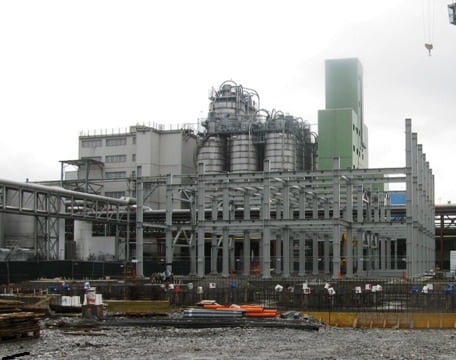Brussels this week approved the formation of Reverdia VOF, a partnership between Netherlands-based DSM and Roquette, headquartered in France, that will see them build a commercial-scale plant to manufacture the chemical next year.
Carbon footprint reduction
While succinic acid is already a well-established substance used in a raft of industries such as food and pharmaceuticals, the breakthrough process developed by the partners means it can now be produced by fermentation rather than from crude oil and natural gas.
“The new process cuts the carbon foot print by around 50% compared to fossil-based production,” Will van den Tweel (pictured right), general manager for the new company, told FoodProductionDaily.com. “It is biodegradable and renewable.”
Succinic acid is a chemical building block that is used in production polyester resins and fibres. One such polymer PBS (Poly Butylene Succinate) along with 1,4 butanediol (BDO) is suitable for food packaging.
PBS is already biodegradable. Making PBS with Biosuccinium makes the PBS about 50% bio-based and thus partly renewable, added a DSM spokesman. In the longer term the company said it was looking into possibilities to make 1,4 BDO with its new succinic acid that would make the PBS 100% bio-based.
“We believe it has enormous potential in food packaging,” said van den Tweel. “More and more people are seeking bio-based and biodegradable solutions and this can help to meet this trend.”
He said that PBS is already being developed for food packaging by various companies in such applications in vegetables and meat. The material can be a clear sheet or as part of a multi-layer film.
Commercial scale

DSM and Roquette have been working on the project since 2008 and opened a demonstration plant in France in 2010. They are currently building a commercial-scale plant in Cassano, Italy (left) which is scheduled to begin production the second half of 2012.
The partners said the proprietary yeast-based fermentation process, which operates at a much lower pH than competing processes, allows succinic acid to be produced with a significantly higher energy efficiency compared to the traditional method. It is also one of the first bio-based processes that sequesters carbon dioxide in the production process.
The site will have an initial annual capacity of 10 kilotons but van den Tweel said this could be extended. It is also considering building a larger factory in future if demand grows, although no location has yet been confirmed.
“Some 10 kilotons of succinic acid would lead to the production of 20 kilotons of polyester resin. This is very small if you look at the size of the packaging market but we see the Italian plant as a first step,” he said. “The market will grow and we are already looking at opportunities to expand our output in other parts of the world.”
